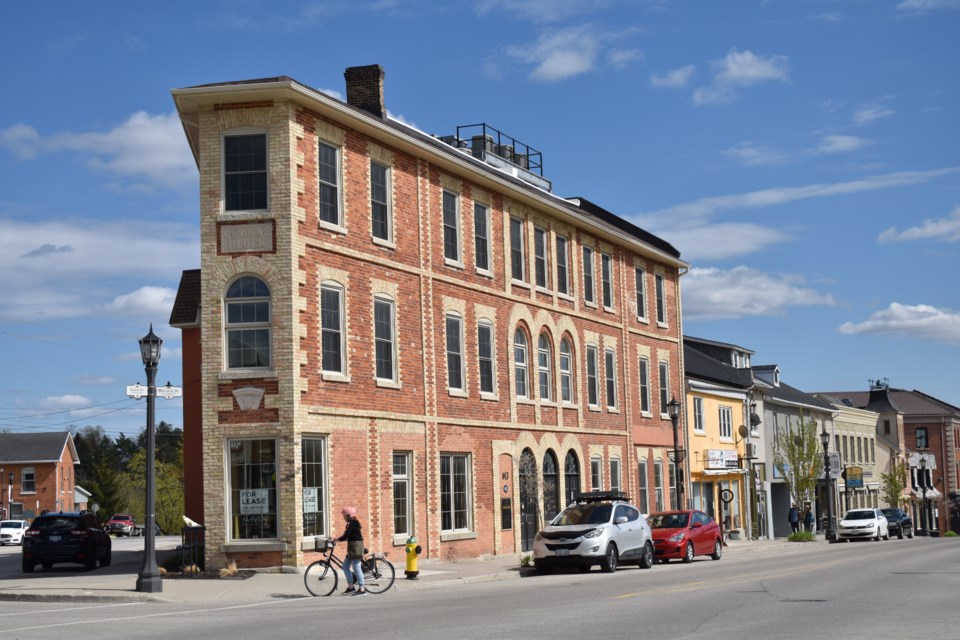EloraFergusToday asked the candidates running for the four major parties in the Wellington-Halton Hills riding a series of questions about the upcoming election. Their answers will run nightly over the next two weeks. Responses were limited to 250 words.
Tonight's question: 'How do rural areas and small towns maintain their identity as more and more people move their from larger cities?'
Ted Arnott, Progressive Conservative
People are attracted to great communities such as ours, and they want to live here. We should welcome them as we would new neighbours.
In Wellington-Halton Hills, we have a quality of life that is second to none in Canada. Our unemployment rate is low, our crime rate is low, our families and community organizations are strong, our schools and health care are excellent, our natural surroundings and cultural attractions are the envy of many other communities. We are very fortunate to live in the Township of Centre Wellington, the Province of Ontario, and in Canada. And we all have the opportunity to participate in our communities and make them even better.
In my almost 32 years in the Ontario Legislature, I have always believed that growth decisions should start with our local, elected councils in consultation with local residents. The province should play a coordinating role, encouraging and supporting local communities however it can, including infrastructure investments when necessary to support growth.
Diane Ballantyne, NDP
We must create more places for people to live as more affordable homes are desperately needed. Housing unaffordability is a demand issue (due to speculation and financialization) and supply is absolutely necessary. Ford’s one-track and harmful approach is giving his developer buddies a blank cheque to pave over the greenbelt for highways no one wants, going to mansions no one can afford. The NDP’s Homes You Can Afford platform takes a completely different approach to land use and planning. We know protecting our farmland, a non-renewable resource, is essential to our food sovereignty. Stopping car-dependent sprawl is also essential to address climate change. Our plan ensures a variety of dwellings are provided within the existing urban boundary while also protecting our natural and cultural heritage.
We will also not use MZO’s to roll over the wishes of democratically elected councils. The NDP will end exclusionary zoning, increasing the supply of housing options that are affordable, in complete communities where people want to live, while holding the line on costly sprawl. This means we will encourage responsible development within existing urban boundaries, while protecting farmland and natural heritage from wasteful sprawl. This includes aligning growth with transit investments and updating zoning rules to enable the construction of more affordable “missing middle” housing, like duplexes, triplexes and townhomes.
Ryan Karho, Green Party
Ontario Greens believe its time to stop the expensive and harmful pro-sprawl and anti-climate agenda of the current government.
Unplanned growth – known as sprawl is expensive, bad for the environment, bad for food security, bad for our health and makes us more vulnerable to the impacts of the climate emergency by destroying the wetlands that protect us from flooding.
Wellington County is my home. I know its possible to grow our communities, meet our housing needs, address the housing crisis, respect our farmland and have a healthy and sustainable community.
Greens know that there is more than enough space within urban boundaries to address the housing crisis and with intention and careful planning, we can create the future we want here in Wellington County. Our plan will:
- Champion smart growth
- Build infill housing near transit
- Ensure community consultation is inclusive
- Strengthen community hubs
- Create vibrant neighbourhoods
- Help small neighbourhood businesses recover and thrive
- Create a new regulatory framework for small business
- Support local arts and social enterprises
Tom Takacs, Liberal
As newcomers become involved in their new communities, they develop a sense of place and identify as part of their new “hometown”. By discouraging sprawl, we will ensure that the character of existing communities is maintained.

.png;w=120;h=80;mode=crop)

